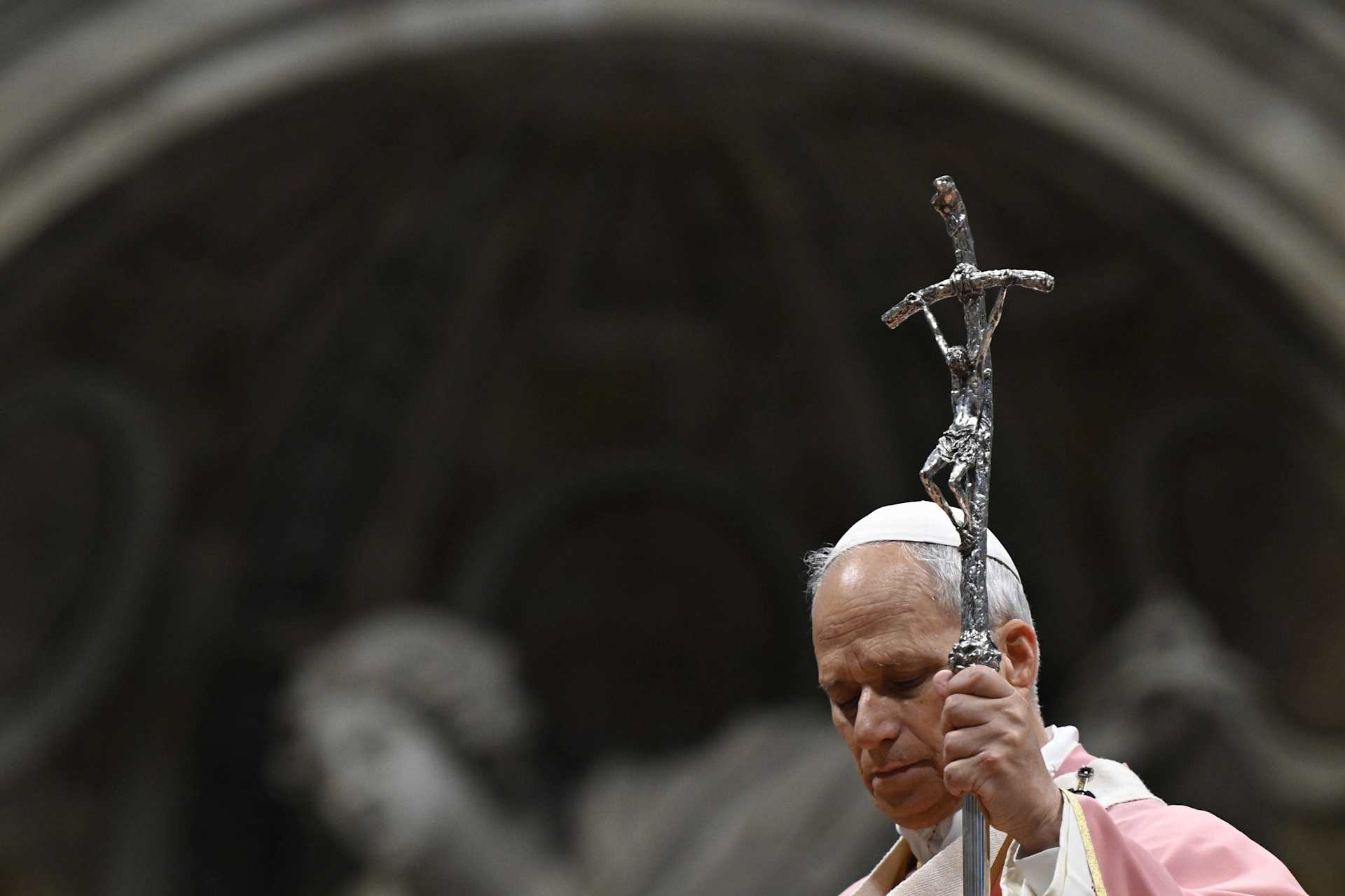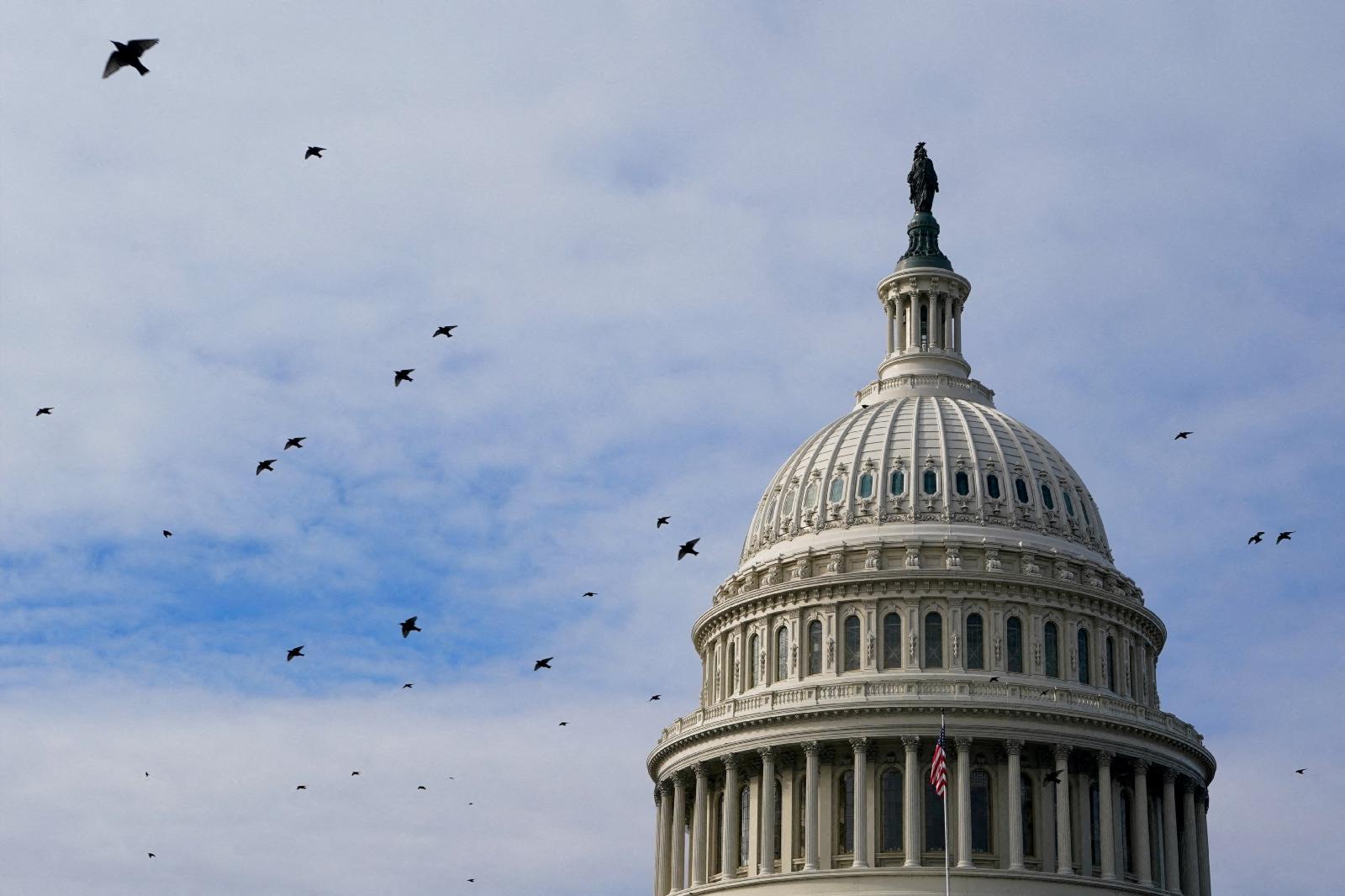Europe must rally the anti-authoritarian alliance
Mario Monti is a former prime minister of Italy and EU commissioner
It only took a few days for two like-minded colleagues, Russian President Vladimir Putin and U.S. President Donald Trump, to outsmart Philip II of Macedon.
The father of Alexander the Great famously devised the “divide and rule” strategy, regarded as the most effective template to conquer and exercise power for over 2,000 years. But no longer. There’s now a new playbook: unite and humiliate.
First, on Aug. 15, Trump extended his deferential welcome to Putin on the Anchorage red carpet. Then, on Aug. 18, he received key European leaders, including Ukrainian President Volodymyr Zelenskyy, at the White House. In those three days, the presidents of America and Russia decided to deprive Europe of any substantial influence.
Amazingly, Europe’s leaders appeared relieved to see someone else bring them to unity and strip them of their remaining clout. But really, they should be distressed. They, along with their citizens and economies, will now pay the price for indulging in years of petty short-termism and nationalist interests over building a stronger EU. And that price will be even higher after the collective mistake of trying to assuage Trump’s appetite for adulation and concessions, in hopes of moderation when making deals.
Indeed, Europe would be justified in harboring resentment toward Trump and feeling tempted to take some distance from the U.S. — but it shouldn’t. Hostility now would be as damaging as the initial rush to adulation. Instead, what the bloc needs is to regain its lucidity, self-confidence and, above all, dignity.
Since Trump’s return to office, some European leaders seem to have developed a sort of Stockholm Syndrome, experiencing pleasure in being held hostage to such a dominant personality. Similarly, a new breed of intellectuals feels it’s their mission to enlighten us to the hard fact that the law of the strongest is fast replacing rule of law, and that we Europeans would do well to embrace this new wave and not fight it.

I have a different view. This is a matter of civilization. Europe has the potential to resist such calls to self-destruction. And it has the duty to — not just in its own interest, but in the interest of the rest of the world — America first.
It is much too soon to envision what Trump’s full impact will eventually be. Concerningly, the bonds between Trump and Putin are many — whether it be their tendency toward authoritarian government, their sympathies for an oligarchic economy that’s subservient to political power, to say nothing of their concept of truth. Trump’s choice of name for his official media platform (Truth Social) even echoes the official newspaper of the Bolshevik movement (Pravda).
Thus, it’s not unlikely that an authoritarian axis might emerge between Trump and Putin. Given his innate sense of superiority and the poor conditions of Russia’s economy, Trump would, of course, be forever convinced he is the leader of said axis. Putin, meanwhile, would be delighted to let the U.S. leader believe this, while deftly manipulating the course of affairs — the days since Anchorage have, unfortunately, validated this narrative.
Similarly, Trump’s exuberance and determination — while perhaps an extra engine to globally project U.S. economic and political might — also appears entirely misaligned with the country’s direction since World War II.
For the U.S. president, rule of law, separation of powers, surveillance over conflicts of interests, and independent authorities may be hindrances to the animal spirits of capitalism, innovation and growth. But these are also the very things that provided the framework for America’s economic success and, as a result, became a template for much of the world.
Internationally speaking, Trump is naturally attracted to unilateralism and abhors bilateral, let alone multilateral, governance. However, it also remains to be seen whether America’s current use — and threatened abuse — of power will be effective in shaping the global landscape to its objectives.
We also can’t neglect the question of global public goods. Humans, nature and the economy — including the U.S. economy — already pay bitterly for their scarcity. What happens if multilateral governance were to truly end?
So, while Trump plays his games with Putin, Europe needs to be braver, lest it’s ready to become the designated victim of the Trump-Putin diarchy. It needs to look to the broader world and set a pragmatic agenda in the following areas:
First, EU countries that so wish should form an alliance with other countries in Europe, like the U.K. and Norway, as well as those on other continents — like Canada, Japan, Australia, New Zealand and others, including developing countries— to promote non-authoritarian rules-based democracies.
Besides freeing us from the incorrect assumption that the world is now Trumpian, such an alliance should give new momentum to free trade and multilateral governance, and pay special attention to the provision of global public goods. Crucially, however, this coalition shouldn’t be antagonistic to the U.S. like the BRICS grouping increasingly is. On the contrary, it should welcome good-faith cooperation with the U.S. — to the extent that Washington is ready to pursue progress along the lines that it had promoted, more than any other country, since World War II. And cooperation with BRICS countries should also be fostered to the extent that it isn’t oriented against the U.S.

Next, both the EU and the G7 must resume their autonomy when it comes to their own policies. Given the failed strategy of propitiatory gifts, partners who recently departed from their established policy stances to give the U.S. concessions should politely withdraw them. The citizens and businesses of those countries should pressure their governments to do so — not least to relieve them of the hidden taxes they’d otherwise have to pay to subsidize U.S. citizens and businesses.
This is the case with the global minimum tax. At the G7 summit in Canada this June, all members accepted America’s request to exempt U.S. companies from this first modest step against tax avoidance and evasion by multinational companies. But the formal procedure for this concession is yet to be completed at the Organisation for Economic Co-operation and Development. And given that the U.S. cashed this favor at the G7 without moderating its stance on tariffs as expected, it would be fair if the G7 countries and the EU chose not to proceed.
Furthermore, as a concession to the U.S. government, the EU had removed the digital tax from its list of potential new own resources in its next multiannual budget. Readers may have to read this a few times before they can believe that a supposedly sovereign supranational entity voluntarily surrendered its autonomy to the will of a third country for a decade to come.
If a personal reminiscence is allowed, we experienced similar U.S. pressures at the European Commission in the early 2000s, from a president many feared after he had started two wars — one in Afghanistan and one in Iraq. Then-President George W. Bush warned us not to dare apply EU competition rules to U.S. multinationals or to the digital economy generally. But while we politely listened and took note, we went on with our jobs.
And finally, there’s defense. I want to underline one point here: I don’t regard the commitment to cover a higher share of the burden on defense as a propitiatory gift or concession. Several presidents before Trump had pressed Europe on the matter — and rightly so, in my view.
In fact, even in the unlikely event that the U.S. were to withdraw its demand, I believe Europe should go ahead with it. U.S. foreign policy is growing increasingly volatile, and we shouldn’t hang our defense on the whimsical politics of a great nation that, despite its history of helping save us from Nazism and Fascism and protecting us from Soviet Communism, now has future strategies that might be more aligned with autocratic regimes than with the values we’ve shared for 80 years.




















:quality(85):upscale()/2023/09/18/918/n/1922398/a1136b676508baddc752f5.20098216_.jpg)
:quality(85):upscale()/2025/10/09/670/n/1922283/00b944c868e7cf4f7b79b3.95741067_.jpg)
:quality(85):upscale()/2025/10/15/765/n/1922398/29c37a6e68efd84bb02f35.49541188_.jpg)
:quality(85):upscale()/2025/09/09/891/n/1922283/7222624268c08ccba1c9a3.01436482_.png)






.jpg?#)









